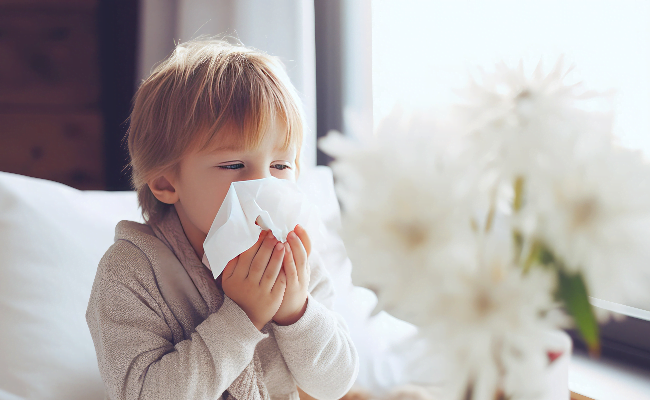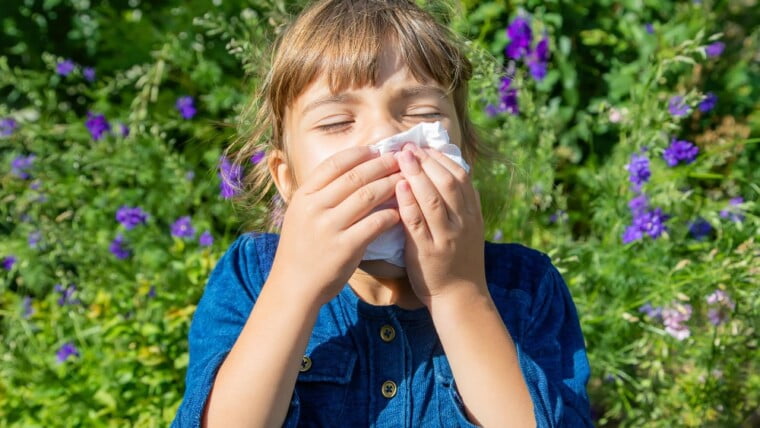Allergies are more than just an annoyance. For many, they’re a significant burden that can impact various aspects of daily life, including energy levels and overall wellbeing. Have you ever wondered, “Can allergies make you tired?” If so, you’re not alone.
This guide provides a comprehensive look into the relationship between allergies and fatigue, ensuring that readers grasp the concept without encountering confusing jargon or complex terminology. Understanding how allergies affect your body and energy can empower you to manage your symptoms better and improve your quality of life.
You’ll learn about the mechanisms behind allergy-induced tiredness, how to identify and combat allergy fatigue, and tips for managing your symptoms effectively. Let’s demystify allergies and explore how you can fight back against the fatigue they often bring.
Can allergies make you tired all day?
Understanding Allergy Fatigue
Allergy fatigue is a common but often overlooked condition associated with allergic reactions. It goes beyond the typical tiredness, presenting as a persistent feeling of exhaustion that doesn’t improve with rest. This fatigue is directly linked to the body’s immune response to allergens—substances your body mistakenly identifies as harmful. When you come into contact with these allergens, your immune system launches a defense, releasing chemicals like histamines. This reaction leads to the classic allergy symptoms but also plays a significant role in making you feel tired.
The Link Between Allergies and Energy Levels
The connection between allergies and decreased energy levels is multifaceted. Allergic reactions can disrupt sleep patterns, either due to discomfort caused by symptoms like nasal congestion, runny nose, and itchy eyes, or the side effects of certain allergy medications that might induce drowsiness or disrupt your sleep cycle. Additionally, your body expends a lot of energy in mounting a response against allergens. This, coupled with poor sleep quality, can leave you feeling drained and fatigued throughout the day. Understanding the impact of allergies on your body can help you take steps to mitigate these effects and improve your overall energy levels.
How do I stop fatigue from allergies?
Identifying Your Allergy Triggers
One of the first steps in combating allergy fatigue is identifying the allergens that trigger your symptoms. Common allergy triggers include pollen, pet dander, dust mites, and certain foods. Each person’s triggers can vary significantly, so it’s important to pay attention to when and where your allergy symptoms occur to help identify potential sources. For more precise identification, consider undergoing allergy testing with a healthcare provider. Knowing your triggers is essential in taking preventive steps to avoid exposure and reduce symptoms.
Practical Tips for Managing Allergy Symptoms
Once you’ve identified your allergy triggers, the next step is to manage your symptoms effectively. Here are some practical ways to do so:
Allergy Medications: What Works Best? There is a range of over-the-counter and prescription medications available that can help alleviate allergy symptoms. These include antihistamines, decongestants, and nasal sprays. Each type of medication has its benefits and potential side effects, so it may be beneficial to consult with a healthcare provider to find the option that’s best for you.
Lifestyle Changes to Combat Allergy Fatigue: Alongside medication, making specific lifestyle changes can also significantly impact your allergy symptoms and overall energy levels. Here are a few to consider:
Keep windows closed during allergy season to reduce pollen exposure.
Use air purifiers to decrease indoor allergens.
Wash bedding regularly in hot water to kill dust mites.
Bathe pets frequently to reduce pet dander.
Prioritize good sleep hygiene to improve sleep quality, even when experiencing symptoms.
By combining the right medications with proactive lifestyle adjustments, you can significantly reduce your allergy symptoms and the fatigue they cause.
What kind of allergies make you tired?
Pollen Allergies and Fatigue
Pollen allergies, also known as hay fever or allergic rhinitis, are among the most common triggers of allergy-related fatigue. During allergy season, the air is filled with pollen from trees, grasses, and weeds, causing symptoms like sneezing, nasal congestion, and itchy eyes. These symptoms can significantly disrupt sleep, leading to a cycle of poor sleep quality and daytime fatigue. Pollen allergies can impact individuals differently, with some experiencing symptoms only at certain times of the year and others affected more continuously.
Food Allergies and Their Impact on Energy
Food allergies can also contribute significantly to feelings of tiredness and lethargy. When the body identifies certain foods as harmful, it can lead to an allergic reaction that encompasses a range of symptoms, including gastrointestinal issues, hives, and in severe cases, anaphylaxis. These symptoms can cause discomfort and stress on the body, which, combined with the immune system’s response, can lead to fatigue. Identifying and avoiding allergenic foods is crucial for managing food allergies and improving energy levels.
Pet Allergies: A Surprising Source of Tiredness
Pet allergies are caused by reactions to proteins found in an animal’s skin cells, urine, or saliva. Even if you don’t have pets, you can be exposed to pet dander in various environments. Symptoms of pet allergies include sneezing, runny or stuffy nose, and itchy eyes, all of which can disturb sleep and lead to fatigue. Managing pet allergies involves reducing exposure to pet dander by keeping pets out of bedrooms, cleaning homes frequently, and using air purifiers.
By recognizing the types of allergies that can lead to fatigue, you can take targeted steps to manage your exposure and symptoms, ultimately reducing the impact of allergy fatigue on your daily life.
Overcoming Allergy Fatigue
Allergy Shots: A Long-Term Solution?
Allergy shots, or immunotherapy, are a treatment option aimed at reducing sensitivity to allergens over time. By exposing the body to gradually increasing doses of the allergen, the immune system can become less reactive, potentially leading to fewer symptoms and less overall fatigue. This process can take several months to years but offers a long-term solution for individuals with severe allergies. Allergy shots are particularly effective for pollen, dust mites, pet dander, and certain types of mold allergies.
Creating an Allergy-Friendly Environment at Home
Minimizing exposure to allergens at home is critical for reducing allergy symptoms and fatigue. Some strategies include:
Using HEPA filters in air purifiers and vacuums to capture fine particles like pollen and dust mites.
Keeping indoor humidity levels low to deter the growth of mold and dust mites.
Maintaining a regular cleaning schedule to minimize dust and pet dander accumulation.
By taking steps to create an allergy-friendly environment, you can significantly decrease the severity of your symptoms and improve your overall wellbeing.
Diet Adjustments to Boost Energy and Reduce Allergies
While there’s no one-size-fits-all diet for allergy sufferers, incorporating nutrient-rich foods that support the immune system and reduce inflammation can help manage symptoms and increase energy levels. Consider adding the following to your diet:
Fruits and vegetables which are high in antioxidants and vitamins.
Omega-3 fatty acids, found in fish like salmon and in flaxseeds, which have anti-inflammatory properties.
Probiotics, which support gut health, available in yogurt and fermented foods.
Additionally, staying well-hydrated and limiting intake of processed foods can aid in keeping your energy levels stable throughout the day.
By combining long-term treatments like allergy shots with immediate strategies like creating an allergy-friendly home environment and making thoughtful diet adjustments, you can effectively fight back against allergy fatigue and reclaim your energy.
Final Thoughts
Understanding and managing allergy fatigue is a crucial step towards improving your quality of life during allergy season and beyond. Through proper identification of your allergy triggers, effective symptom management, and strategic lifestyle adjustments, you can significantly reduce the impact of allergies on your daily energy levels.
Remember, while allergies may pose ongoing challenges, they don’t have to control your life. Empower yourself with knowledge, seek support from healthcare professionals when needed, and be proactive in taking care of your health. With the right strategies, you can enjoy a more energetic and vibrant life, even during peak allergy season. Stay encouraged, and explore further resources to continue learning and finding relief from allergy fatigue. Your journey to overcoming allergy-induced tiredness is a valuable investment in your overall wellbeing.



